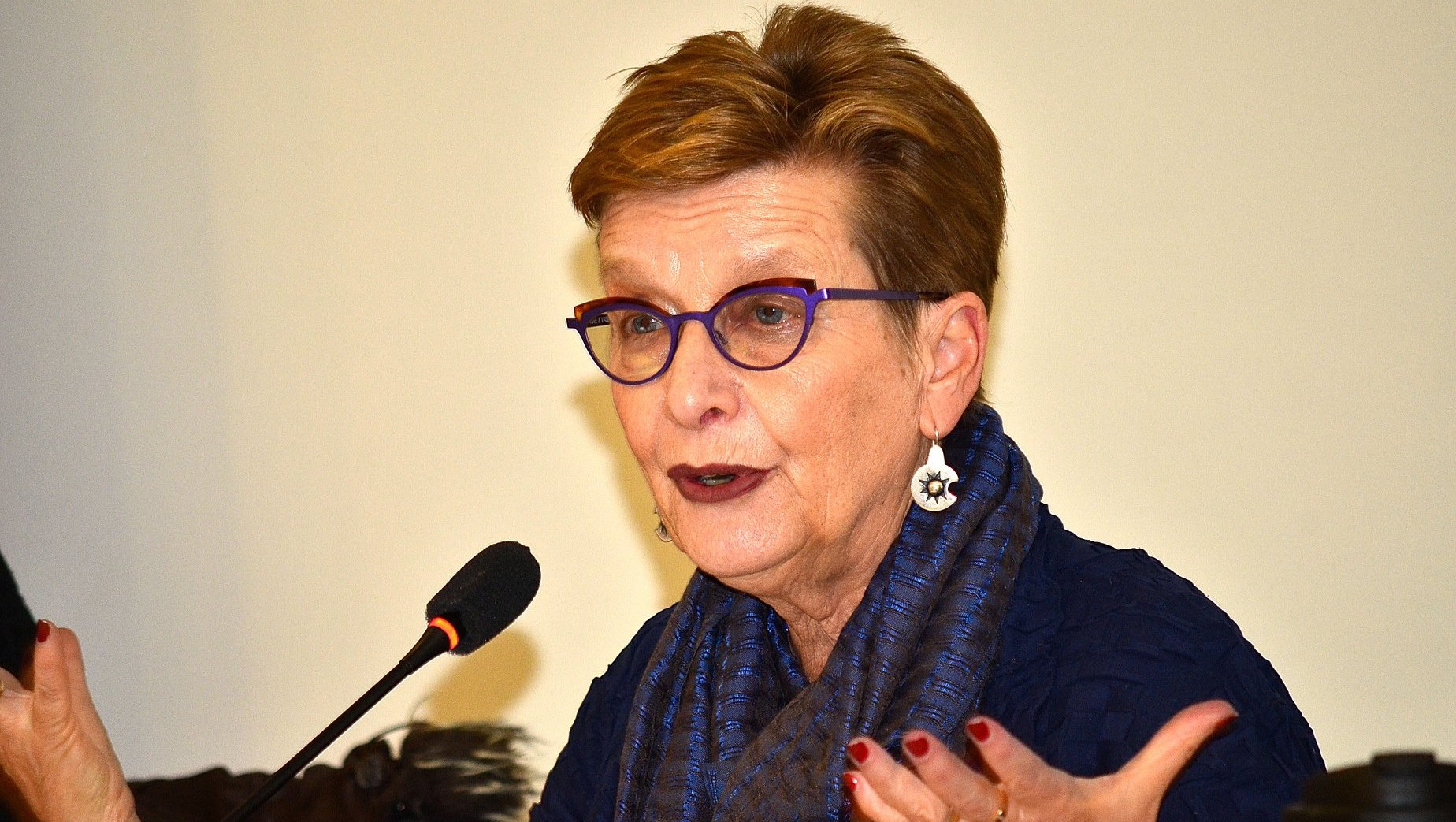Marianne Hirsch, the Creator of ‘Postmemory', visits Chile

Marianne Hirsch, the Columbia University professor known for developing the concept of Postmemory, returned to Chile in early June to participate in several events, including the colloquium “Postmemory: Conversations on Human Rights and Migrations" hosted by the Santiago Center in conjunction with Universidad de Chile and a two-day seminar organized by Universidad Católica entitled “The Future of the Past”.
Postmemory is described as "the relationship that the 'generation after' bears to the personal, collective, and cultural trauma of those who came before, to experiences they 'remember' only by means of the stories, images, and behaviors among which they grew up." Hirsch’s work combines feminist theory with memory studies, particularly the transmission of memories of violence across generations.
Hirsch was born in Romania and is the child of Holocaust survivors. While growing up she found that the memories shared by her parents were stronger and more visceral than her own childhood memories. She began to explore how that could be and in what other contexts this experience could be occurring.
In the context of “The Future of the Past” seminar, Hirsch and Leo Spitzer, professor emeritus at Dartmouth College presented a lecture entitled "School Pictures in Troubled Times", which examined the historic, aesthetic and personal aspects of group school photos s taken during moments of persecution and resistance in recent history, like the Second World War, the beginning of the Civil Rights movement or the recent school shootings in the US. Some of the images were taken by perpetrators; others by peers. The lecture saw these images as documents of assimilation, exclusion, resistance and hope in times of extremity.
"Postmemory: Conversations on Human Rights and Migrations" was hosted by Soledad Falabella, who from 2013 to 2017 formed part of the academic group, "Women Mobilizing Memory" at Columbia's Center for the Study of Social Difference. Falabella is currently a professor in the Gender and Culture master's program at the Universidad de Chile and the founding director of ESE:O. Among the topics discussed in this event were the ways in which memories of violent histories can be mobilized for more hopeful futures. Hirsch discussed with the audience whether young women protesting academic bias in universities and violence towards women on the streets of Santiago at that time were a generational reaction to their parents' experience during the Pinochet dictatorship. Feminism has an important role in memory studies, she said, because, like feminism, memory studies is dedicated to retrieving forgotten or suppresses stories.
Hirsch emphasized that memory studies are not exclusive to one social movement, one generation, or one historical event. But, they analyze an entire generation's social, emotional, affective, reaction to public events. "Memory and history are deeply interrelated…they are not separate", she said. "But the growth of a field of memory studies shows that history is not enough. It shows that something is missing in purely historical approaches".
Hirsch also participated in workshops and roundtable conversations at the History department of Universidad Católica. These events featured the artist Mirta Kupferminc, the Chilean-US poet and human rights activist, Marjorie Agosin, and Leo Spitzer in conversation with Columbia alumna Ximena Vial (MA in Museum Anthropology 16').
Hirsch is Director of the Center for the Study of Social Difference and professor of English and Comparative Literature and of Gender Studies at Columbia University. She is a member of the American Academy of Arts and Sciences and a former President of the Modern Language Association of America. Among her published works is "The Generation of Postmemory: Writing and Visual Culture after the Holocaust". She is currently working on a series of essays about the future of memory.
- See images here